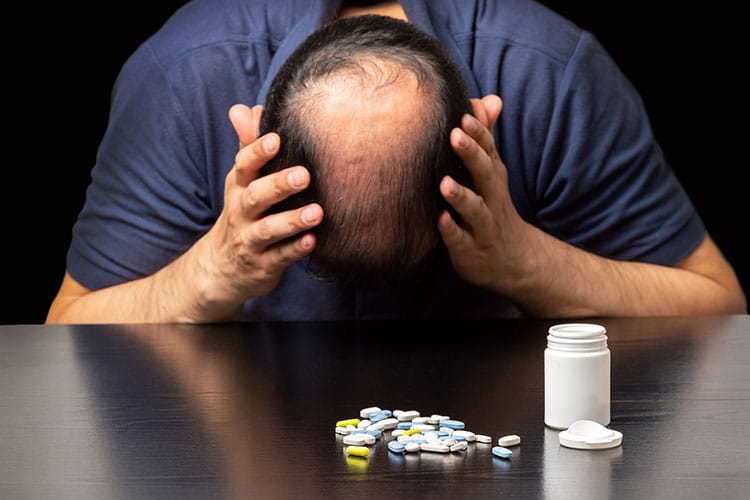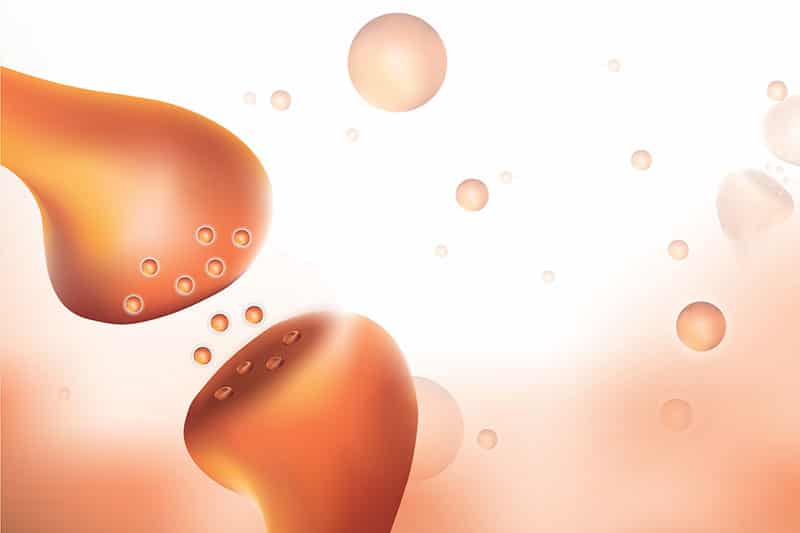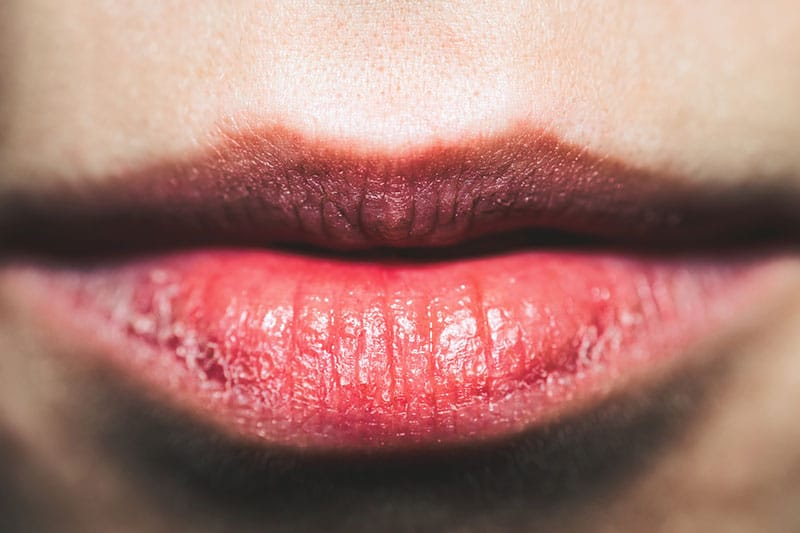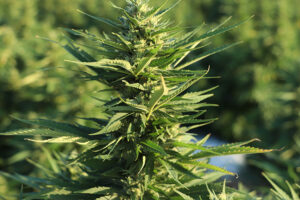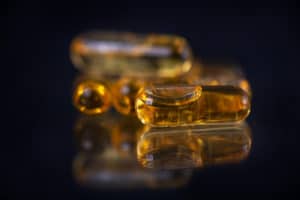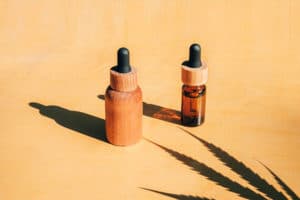CBD has been the talk of the town for quite a while now. It has revolutionized the way people perceived cannabis-use back in the day. From tinctures to edibles to vape juices, the market is ever-growing as new companies are emerging into the CBD scene.
Consumption methods are changing too, and now you can find CBD topicals and beauty products as well, including CBD-infused creams, lotions, eye-balms, pain-relieving ointments, etc.
How has this happened? The growing legalization of cannabis around the world has impelled research efforts into the industry. As a result, we know more about the Cannabis sativa plant right now than we did decades ago.
However, we still need more evidence to get a better understanding of the benefits CBD Oil has. If you are new to CBD Oil, you might have mixed feelings and tons of questions about its use:
Is CBD Oil Safe?
Is CBD Oil addictive?
Are there any side effects?
There has been a stigma surrounding the recreational use of cannabis in our society, so it is okay to be skeptical about trying CBD when you are not familiar with it.
So the question is:
Is it possible to get addicted to CBD Oil?
Well, this guide has the answer to all of your concerns about using it for the first time. It will inform you about:
- the factors that influence addiction
- the interaction of CBD Oil with our endocannabinoid system
- its legal status in the USA
- whether CBD is addictive or not
- the potential CBD might have for the treatment of addiction and drug abuse.
Let us get started.
Understanding Addiction – How Does a Person Know They Are Addicted?
To understand whether CBD can have addictive effects on your body, we need to know about how it works and affects your brain. Addiction refers to the uncontrollable craving for something that can manifest into a mental or physical dependency on it.
Before we had access to extensive scientific research, people did not have much information about what could cause addiction. They usually associated it with alcohol-use and synthetic drugs.
Nevertheless, now we know that it is also possible to develop an addiction to pleasure-seeking activities such as sex, gaming, exercise, and even shopping!
How does this work? Well, there are three different ways addiction can enslave your brain. Firstly, you develop an intense craving for the substance or activity. Consequently, you start losing control over its use and behave compulsively. Finally, despite the risks and negative consequences associated with it, you do not stop.
But how do you stop? As we know more about the causes of addiction, categorizing it as a brain disease is more suitable. Mainly because of the way it changes brain functions. It does this by altering the way our brain responds to pleasure and reduces the levels of motivation and learning drives. Putting an end to addiction requires a clear understanding of your goals and willingness to put conscious effort towards them.
What is CBD?
CBD is one of the many chemical compounds found in the Cannabis Sativa plant. It is a phytocannabinoid that belongs to a family of more than 113 other cannabinoids present in the plant. It makes up 40% of the plant extract.
CBD is an essential component of medical marijuana products, yet its concentration is greater when derived from the hemp plant. Unlike THC – which is known for its psychoactive effects, CBD does not exhibit intoxicating properties. So you can experience the relaxing effects of THC without the high.
To extract CBD directly from the hemp plant, you must utilize its shoots, stems, and roots. These contain a higher concentration of CBD than any other part of the plant. Diluting the resulting oil with a carrier, including coconut oil or hemp oil, makes it suitable for consumption. CBD products come in lots of different varieties, including Full-spectrum, Broad-spectrum, CBD Isolate, and other variants.
Is CBD Oil Legal in the USA?
For decades cannabis-derived products were classified as a Schedule 1 drug, falling under the same category as heroin. However, the recent influx of cannabis enthusiasts and their advocacy for CBD as a therapeutic compound has propelled legalization.
The Farm Bill, signed in 2018, has made hemp-derived CBD products with less than 0.3% THC legal for cultivation, transportation, and sales in the USA. Despite this legalization, marijuana-derived products are illegal in the USA, and anything remotely above the required THC-level is prohibited by the authorities as well.
As of now, the U.S. Food and Drug Administration has approved only one CBD-infused drug as a medicine. Known as Epidiolex in the market, it contains a purified form of CBD and has shown promise in treating two severe forms of epilepsy in children.
Marketing CBD as a medical or dietary supplement is still illegal, and we recommend doing proper research about your state laws before you buy any of the CBD products mentioned on this website.
Marijuana vs. Hemp-derived CBD Oil
The type of cannabis plant from where you are getting your CBD influences the concentration and chemical composition of plant compounds in it. Marijuana and hemp belong to the same family of cannabis plants, known as the Cannabis sativa. It is easy to mistake hemp, cannabis, and marijuana for the same thing, especially if you are new to CBD.
CBD is present in both marijuana and hemp plants. The marijuana plant is known for its higher levels of THC and comparatively low CBD. The higher THC concentration makes it perfect for people consuming cannabis recreationally.
In contrast, the hemp plant has a different chemical profile. It contains high levels of CBD and low THC, almost 0.3%. Moreover, its fibers and seeds have industrial significance. If you are consuming hemp-derived CBD, you will not get high.
Primarily, the source of your CBD Oil will significantly influence its nature and potential for addiction. We recommend choosing hemp-derived products so that your experience with CBD is as beneficial as possible.
Is CBD Oil Addictive?
The psychoactive properties of THC increase its potential for abuse. Does this apply to CBD Oil as well? Honestly, it depends on the origin of your CBD oil. If it comes from a marijuana plant, you are bound to get higher levels of THC. However, CBD oil derived from hemp contains a trace quantity of THC, which is not enough to produce intense psychoactive effects.
A randomized trial conducted by GW-Pharmaceuticals (Cambridge, UK) concluded that CBD did not have any potential for withdrawal symptoms associated with addiction. The volunteers received equal dosages of pure cannabidiol and a placebo to assess if they experienced any withdrawals. The results showed that healthy volunteers did not show any symptoms after abrupt discontinuation of CBD.
Another study published in the Journal of the American Society for Experimental Neurotherapeutics suggested that the non-psychoactive nature of CBD makes it less prone to drug-seeking behaviors. Unlike THC, it also does not cause any changes to brain function that might result in habit-forming tendencies.
To make things better, WHO categorized CBD oil and similar hemp-derived products safe for consumption, posing no threats of dependence or abuse.
With so much information pointing in the same direction, it is safe to say that you will not get addicted to CBD oil. However, if you are still worried about the risks, we suggest choosing brands that provide CBD-dominant products with 0.3% or less quantity of THC.
CBD Oil for Addiction – The role of the endocannabinoid system
Now that you know how CBD is not addictive and you can add it to your daily routine, there are some other positive takeaways for you as well. Recent studies have proposed that CBD has shown promise in the treatment of addiction disorders and alleviating withdrawal symptoms in rehab patients.
The interaction of CBD with our endocannabinoid system is crucial in this regard. The body contains natural, lipid-based neurotransmitters called endocannabinoids that bind with CB1 and CB2 receptors in our body. These are responsible for regulating numerous bodily functions such as mood, sleep, homeostasis, etc.
Cannabinoids such as CBD behave similarly, increasing the effectiveness of the endocannabinoid system. CBD is known to produce therapeutic effects and relieve nausea, pain, headaches, anxiety, etc. These symptoms are common in individuals trying to overcome some form of addiction.
Factors that Contribute to Addiction
Substance abuse and addiction disorders affect millions of Americans each year, impacting their social life, mental and physical well-being. No one intends to become an addict, so people need to understand that overcoming addiction is not in their control. It is a disease, and several factors can contribute to it. If someone you know is currently going through drug addiction, we suggest you look for treatment options as soon as possible. CBD oil and related products might help in countering the risks of addiction disorders, speeding recovery, and improving overall health.
Here are some of the factors that can contribute to addiction. While these might not directly cause addiction, they can negatively influence the affected individual, making it difficult for them to rehabilitate.
Pleasure-seeking triggers
Addictive substances like nicotine, caffeine, and THC can alter brain function in a certain way. When these substances interact with our brain, they trigger an influx of neurotransmitters, such as dopamine, in a region called the nucleus accumbens.
Dopamine is responsible for stimulating pleasurable sensations in the body. The buildup of dopamine in the nucleus accumbens plays a significant role in addictive behaviors, as it creates a shortcut for you to experience these pleasurable triggers.
Methods of administering the drug can also influence the likelihood of addiction. Usually, smoking and injecting it in your blood produces a more intense dopamine signal that further increases the chances of getting addicted.
Drug Tolerance
The reward system in our brain usually gets activated after consistent effort and time. The use of addictive substances changes this and makes pleasure-seeking easy.
However, continuous use causes your brain receptors to become overwhelmed with all the dopamine buildup, making the experience less pleasurable. It reacts by blocking dopamine receptors and decreasing its levels.
Once our brain adapts to these changes, the original dosage of the drug no longer results in the same feeling of pleasure. This phenomenon is known as drug tolerance. People with greater drug tolerance require a higher dosage for them to feel the same effects.
Learning Behaviors
Pleasure-triggers and developing drug tolerance are not the only factors that can contribute to addiction. Dopamine also contributes to the learning and memory process of the brain. Both these elements are crucial when it comes to the likelihood of becoming addicted.
A study published in the European Journal of Pharmacology outlines how abnormal associative learning contributes to addiction. Dopamine interacts with a different neurotransmitter, called glutamate, and influences the reward-related learning system of our brain. All the activities that led to someone using the drug are as important as the release of dopamine. These actions are learned-behaviors that can make you seek out the substance more often.
Family history
Do you know how they say it runs in the family? Scientific research has shown that genetics can significantly increase the risk of addiction disorders. Individuals that have a family history of drug-use have a higher chance of becoming addicts themselves.
A study conducted by the University of Utah suggests that children can inherit addictive behaviors from their parents through the transfer of genes. Researchers collect and compare different genes to find out which ones are present in people with addictions.
The A1 form of the dopamine receptor gene DDR2 is more common in people who are addicted to alcohol, heroin, or cocaine. However, the presence of this gene does not mean that the person will automatically become an addict. It just means that this will alter the way their brain reacts to the substance.
Age
Evidence suggests that individuals who start using drugs before the age of 18 have a higher chance of developing an addiction disorder as compared to those who did not.
Why does this happen? Well, the prefrontal cortex, a part of the brain associated with judging situations and making sound decisions, is less developed when a person is in their teens. With this part of the brain still immature, the ability of a person to assess drug-related scenarios is compromised, making them prone to using it.
Peer pressure
If the person has friends or family that consume a specific drug recreationally, they are more likely to adopt drug-use and related behaviors. The chances also increase if that person has a significant influence on their life.
For teenagers who try drugs for the first time, peer pressure and social acceptance are key factors. It also prevents them from quitting in the long run as these individuals have a higher chance of making friends who are drug-users themselves. Trying to fit in the crowd without acknowledging the risks is something that many people go through during their teenage years.
Lack of Social Interactions
The infamous Rat Park experiment is a clear example of how a lack of social interactions can contribute to developing an addiction to drugs. Test subjects placed in a cage with access to other rats had lower chances of using drugs such as alcohol or cocaine.
Humans behave quite similarly, and having a strong bond with friends and family who support you decreases the likelihood of someone feeling lonely. Being lonely can be the worst feeling ever, and some people resort to drug-use to cope with it and feel better.
Poor mental health
It is no surprise that people with poor mental health are more prone to addictive behaviors and substance abuse. Evidence suggests that people diagnosed with mental illnesses such as anxiety, depression, and panic attacks are more prone to developing some form of addiction later in their lives.
People with poor mental health are likely to feel insecure and hopeless in their lives. Anxiety and depression increase the risk factors associated with addiction. Individuals with reduced mental well-being prefer not seeking help and resorting to self-medication to get well. Such behavior can increase their chances of adopting some form of addiction disorder.
CBD Oil as a possible remedy for drug withdrawal symptoms
According to a survey conducted by the Pew Research center, 79% and 87% of the people living in rural and urban areas, respectively, see drug addiction as a problem in their community. In the USA, a majority of people are not satisfied with programs in their area dealing with drug addiction.
The popularity of CBD and the growth of the wellness movement has happened side by side. Companies are marketing CBD oil for its therapeutic benefits as it has shown promise as a wellness product. Before examining the factors that contribute to addiction, we discussed the potential CBD has for the treatment of substance-abuse problems and the prevention of relapse in addicts.
The stress and pain-relieving properties of CBD might be crucial for treating people with addiction disorders, and now we will explore how CBD can work to address these problems:
CBD Oil for Alcohol Use Disorder
Despite the widespread social acceptance of alcohol around the world, there is no denying that it can be an addictive substance. Alcohol consumption has increased drastically during the COVID pandemic, and like every other drug, it can have potential risks when overdosed.
If you have been consuming alcohol for a long-time, you might experience changes in physical and mental well-being when you stop drinking. The symptoms can vary individually, depending on the frequency of consumption. These include:
CBD Oil can be useful in alleviating the withdrawal symptoms associated with alcohol consumption. A preclinical trial published in the Journal of Pharmacology and Experimental Therapeutics suggests that CBD can limit the neuronal damage caused by alcohol, reducing the risk of cognitive impairment in heavy drinkers.
CBD Oil might also help in decreasing alcohol consumption and drug-seeking behaviors, further reducing the chances of relapse.
CBD Oil for Cocaine Addiction
4.7% of male and 2.9% of female high school students in the USA admit to using cocaine at least once in their lifetime. During the years 2013 to 2018, cocaine-induced deaths in the USA increased by 27%.
Cocaine is the second most trafficked illegal drug in the world. It is highly addictive, and discontinuing use can result in severe withdrawal symptoms, including:
- Difficulty concentrating
- Loss of perception of time
- Slowed responses
- Muscle pain
- Anxiety
- Suicidal thoughts
- Increased appetite
- Increased cravings
Using CBD oil can help the person feel more relaxed and less anxious, decreasing the effects of cocaine withdrawal.
A recent study analyzed the effects of CBD on rats that were addicted to cocaine and alcohol by applying a transdermal CBD-infused gel on their skin every day for a week.
The results were quite positive as the rats showed a reduction in drug-seeking behaviors, and there was a significant decrease in their stress levels too.
CBD Oil for Smokers
With 480,000 deaths annually, cigarette smoking is one of the leading causes of death in the USA. Prolonged exposure to cigarette smoke can lead to lung cancer, coronary heart disease, and impotence. Quitting cigarettes can be extremely difficult, mainly due to the highly addictive nature of the compound nicotine found in them.
While there are no severe withdrawal symptoms associated with cigarette smoking, you can experience intense mood swings and feelings of agitation when trying to quit.
CBD might help people trying to quit smoking for the first time. One particular study analyzed the effects of CBD on quitting cigarettes. Volunteer smokers had to choose between CBD-infused inhalers and placebos. When they felt the urge to smoke, they had to use the inhaler.
Results showed that CBD reduced the number of cigarettes smoked by almost 40%, while the placebo group showed no reduction.
CBD Oil for Opioid Addiction
Opioid overdose has been the leading cause of drug-related deaths in America. In 2018 alone, 14.6 percent of deaths caused by substance abuse were due to opioid overdose.
Opioids are a class of highly addictive drugs that can be difficult to stop using because of their withdrawal symptoms. These symptoms include:
- Body aches
- Fever
- Sleep disorders
- Nausea
- Vomiting
- Diarrhea
- A runny nose
- Anxiety
CBD has shown potential in helping addicts quit opioids for good. The pain-relieving benefits of CBD might help in treating chronic pain. CBD also reduces stress levels in people with addiction to encourage them towards overcoming this disease. The influence of CBD on sleep and mood changes is quite significant in this regard. It might also help in preventing drug-seeking behaviors and relapse in ex-addicts.
CBD Oil for Cannabis Use Disorder
Continuous use of marijuana recreationally increases the risk of the person developing a cannabis use disorder (CUD). The chances further increase if the person started using marijuana before the age of 18.
People with cannabis use disorder develop habit-forming tendencies with marijuana use, which affects their physical and mental health. It can also interfere with their daily routine and make them unproductive.
Quitting marijuana is not that simple, and frequent users might experience some withdrawal symptoms that can make the process a lot more complicated. These include:
- poor appetite
- mood changes
- irritability
- insomnia
- headaches
- loss of focus
- cravings for marijuana
- sweating, including cold sweats
- feeling low
Cannabinoids in the marijuana plant interact with receptors in our body that control several regulatory functions. Daily use can decrease the levels of natural endocannabinoids in our bodies.
When a person discontinues consumption, our body regulates endocannabinoid levels and brings them back to normal. The effects associated with cannabis withdrawals can last up to three weeks.
Using CBD can block the interaction of THC with cannabinoid receptors in the human body, decreasing its effects. CBD can also relieve pain, anxiety, and encourage sound sleep to better cope with withdrawal symptoms. People who smoke THC-rich strains should opt for CBD-dominant ones if they are looking to reduce their marijuana consumption.
Side-effects associated with using CBD Oil
We have concluded that CBD does not behave as a psychoactive compound and is not addictive. Moreover, we have discussed the benefits of using CBD Oil for treating patients with addiction disorders. But before you choose the CBD product that suits you, it would be fair to look at any side effects that might be associated with using CBD oil.
CBD is generally safe to use and poses no public health risks. However, people who are new to it might experience some side effects, which are similar to other hemp-derived products. The side effects of CBD include:
- Dry mouth – quite common when using cannabis-derived products as they reduce saliva production.
- Low blood pressure – consult your doctor before using CBD products if you struggle with blood pressure.
- Feeling Dizzy – experiment with low doses of CBD, as higher doses can make you feel lightheaded.
- Diarrhea – carrier oils such as MCT can irritate the gastrointestinal lining, so opt for a different carrier oil if you experience diarrhea.
- Interaction with other medications – consult your doctor if you are on any medication before using CBD oil, as it can cause certain substances to remain in your blood.
Tips For Choosing the Right CBD Product for Yourself- Best CBD Brands in The Market
CBD products, available in the market right now, come in different varieties, each with benefits of their own. There are CBD isolate products, full-spectrum CBD with 0.3% THC and broad-spectrum ones too. We recommend choosing a product that contains the threshold amount of THC.
CBD isolate products contain the purest form of CBD and are perfect for people looking to consume CBD only. Full-spectrum and broad-spectrum variants contain a mixture of several other plant compounds that work together to increase the effectiveness of the final product. The only difference between full-spectrum and broad-spectrum CBD products is the presence of THC.
The method of consumption can influence your CBD dosage too. For example, if you are using a CBD topical, choose a high concentration of CBD to get the maximum benefits from its application. Some people believe that smoking a CBD-dominant strain is the most effective way of consuming CBD. However, there are several other products, such as CBD tinctures, edibles, gummies and capsules, that make consumption simple and easy.
When shopping for CBD products, look for terms like “pure cannabidiol” and “hemp-derived product” on the labels, as it helps you get the right product. Some people mistake CBD oil for hemp-seed oil, so do your research before buying CBD products online. If you want to explore the highest-quality CBD products in the market, visit our shop and get started!
FAQs About CBD and Addiction
Question: Is CBD safe to use?
Answer: The World Health Organization has declared cannabidiol as a compound safe for consumption, posing no threats of drug dependency and potential abuse.
Question: How does a person know they are addicted?
Answer: Addiction enslaves your brain through a three-step process. First, you develop an intense craving for the substance. Next, you start losing control of its use and resort to compulsive behavior. Finally, you continue its use despite risks and negative consequences.
Question: What are the factors that contribute to addiction?
Answer: Several factors can contribute to addiction including family history, pleasure triggers, learning behaviors, drug tolerance, age, mental health conditions, etc.
Question: Is CBD oil addictive?
Answer: No, CBD oil does not have the same intoxicating properties as THC. It is safe to use and you will not get addicted despite frequent use.
Question: Is CBD legal in the USA?
Answer: According to the Farm Bill of 2018, Hemp-derived CBD products with less than 0.3% THC are legal for cultivation, transportation and sales in the United States of America
Question: What are the side effects of using CBD oil?
Answer: CBD is generally well-tolerated and can affect each person differently. Frequent use can cause dizziness, dry mouth, low blood pressure, and in extreme cases , diarrhea. CBD can also interact with prescription drugs and reduce their efficacy.
